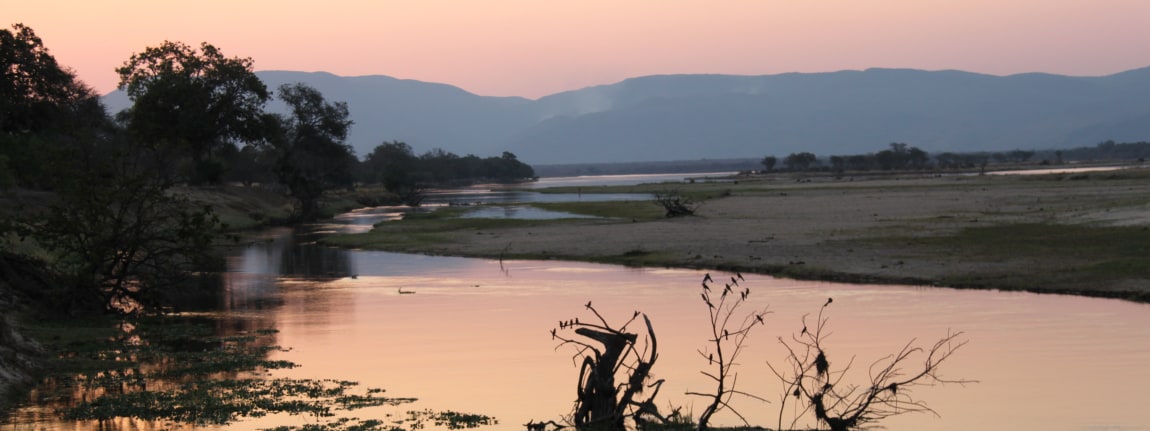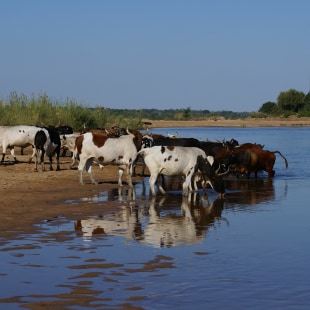Promoting an innovative and cross-cutting scientific approach
With the Covid-19 crisis, all eyes are on the interactions between climate change, biodiversity loss and increasing human-induced pressures on ecosystems. If there is no better understanding of these complex systems, the scientific community is expecting an accelerated emergence of infectious diseases. To make effective progress in managing global epidemic risks, scientists are currently developing innovative and transversal approaches while favoring citizen science.
Interactions between climate and épidemics
The rapid spread of the SARS-CoV-2 virus worldwide sheds a harsh light on the link – overlooked for too long – between ecosystems health, animal health and human health. Wildlife is the major source of human pathogens, and the sanitary significance of animal-borne diseases keeps increasing. However, the zoonotic diseases can use a wide variety of transmission modes that can also depend on how affected by climate change concerned regions are. As for biodiversity declining, researchers warn us: it should even more increase the exposition to the risks of infections.
Environnemental epidemiology
Building on its community of more than 800 researchers working across the 5 continents, the IRD created on 2 April a committee composed of 8 members (researchers from the Institute and partners from the South) whose task is to coordinate the scientific actions in the face of the current health crisis. In line with the Institute's missions, of which the BNP Paribas Foundation is a partner, these researchers provide support with disease diagnosis, epidemiological monitoring and health system responses, particularly to several affected countries in the South.
As part of their more specific missions, Eve Miguel and Olivier Dangles would like the scientific community to benefit from their experience in environmental epidemiology, or now labelled as eco-health. At the crossroads between ecology, healthcare, epidemiology and social sciences, this recent discipline looks for innovative, practical and realistic solutions to limit the health risks due to human-induced changes on the environment.
Can the role of biodiversity in the emergence of new infectious diseases be scientifically evaluated?
The matter could not be timelier as the Coronavirus crisis sent an electric shock into higher consciousness. Yet the necessary means to investigate the effects of biodiversity – either resilient or tenuous – on the emergence of infectious diseases are huge. Especially if we take into account the global warming and the social determinants specific to one region. It is precisely this kind of challenge that Eve Miguel strives to take up in Zimbabwe, in the heart of a still relatively preserved savannah, where contacts between wild animals and domestic livestock introduces a severe risk of epidemic. In addition, the population abundance of large mammals in Africa has sharply decreased since 1970, mainly due to poaching and deforestation.
In this context, several bovine epidemics (foot-and-mouth disease, tuberculosis or even brucellosis) are eroding Zimbabwe’s health and economy for nearly twenty years. “We are mainly interested in knowing whether biodiversity protect against the zoonotic risk, as much as the wild and domestic animal diseases. We want to empirically test our hypothesis, by tracking temporally and spatially numerous species.”
In Southern Africa, temperatures are rising faster than the global rate
"In 15 years, I’ve witnessed Zimbabwe’s aridification. Droughts and floods are recurrent, seasonality is totally disturbed” declares the scientist Eve Miguel, an Ecology and Epidemiology expert and lead researcher of the “HUM-ANI” project.
Eve Miguel Podcast/HUM-ANI project
HUM-ANI project : eco-health in the fight against epidemics.
HUM-ANI project: A transdisciplinary approach
Through a transdisciplinary approach (Epidemiology, Ecology and Sociology), the massive fieldwork effort of “HUM-ANI” should enable to understand better pathogens circulation. The research activities mostly consist of monitoring multispecies groups of animals collared with GPS, sampling saliva and faeces, and even set camera traps. Through a strong partnership with numerous international institutions (universities of Zimbabwe and South Africa, the Oxford University, the Imperial College of London, veterinary services and national parks of Zimbabwe) and national ones (CIRAD and CNRS), Eve and her team members will be able to establish the first Eco-health mobile lab for the inclusion of the Zimbabwean population.
This small bus will specially be equipped to do “traditional field research” as well as citizen science and scientific outreach towards populations. It also will set optimal conditions for scientific and civil society emulation and favor communications between scientists, wildlife managers and other stakeholders, in order to think about tomorrow’s socio-ecosystems of Human-Nature interfaces.
Eventually, « HUM-ANI » will provide groundbreaking scientific data to parameterize epidemiological models and understand pathogen circulation in multi-hosts system. The project will also help reflect upon the sustainability of these socio-ecosystems.
HUM-ANI embarks real innovation that will deliver strong impact and great outreach, as the health consequences of climate change and biodiversity collapse is a major stake with big echoThe Scientific committee of the BNP Paribas Foundation
Generalize transdisciplinary scientific methods geared towards the search for solutions
Olivier Dangles, is the lead researcher of the « LIFE WITHOUT ICE » project funded by the Foundation (studying the consequences of glacier extinction for biodiversity and people in temperate and tropical regions).
What is the link between the cryosphere and epidemics?
Although some frozen terrestrial areas like the permafrost may be important environmental reservoirs of pathogens, it is not Olivier Dangles’ research subject. With a background in Ecology, this invasive insect-pests specialist mainly works in Ecuador, Peru and Bolivia, in the Andes mountains. The high-altitude glaciers in these tropical and subtropical regions are the most endangered by global warming: their predicted retreat may lead to the extinction of the associated biodiversity, many natural resources and entire civilizations… Working over the years in direct contact with the Andean populations reinforced his holistic approach to research.
Olivier Dangles leads the longer-term collective reflection on the response of IRD to the current health crisis. In fact, Olivier works with the Institute’s COVID-19 interdisciplinary and partnership-based scientific committee as Ecology researcher and Acting Director of the Ecology, Biodiversity and Functioning of Continental Ecosystems Department (ECOBIO) of IRD.
Because it mobilizes different approaches and transdisciplinary methods, geared towards the search for solutions, the analysis of this crisis management should be rich in lessons and enable the Institute to better face future challenges and anticipate change.
Olivier Dangles Podcast/about the holistic approach
Olivier Dangles about the holistic approach to research geared towards the search for solutions.
Olivier Dangles, Ecology researcher and Acting Director of the Ecology, Biodiversity and Functioning of Continental Ecosystems Department (ECOBIO) of IRD states :« The Covid-19 crisis is an opportunity to reflect on the functioning of our research collectives. This is why the application of the Sustainability science’s main principles (common objective, transdisciplinarity, co-construction of knowledge) is a promising and exciting approach».
The « Climate & Biodiversity initiative » of the BNP Paribas Foundation
Since 2010, the BNP Paribas Foundation has significantly contributed to supporting environmental research. Through its Climate & Biodiversity initiative, the Foundation has funded 27 research projects with a total budget of 18 million euros.Through conferences, education toolkits and other public events, awareness on environmental issues has been raised among more than 400,000 people.
To tackle climate change and biodiversity erosion, two of today’s biggest challenges, the BNP Paribas Foundation will fund 9 new international research projects with a total budget of 6 million euros between 2020 and 2022.
Those projects will study various subjects such as the consequences of glacier extinction for biodiversity and people at a global scale, the vulnerability and resilience of coastal biodiversity to the increased frequency and intensity of hurricanes and droughts or reforestation.
The French National Research Institute for Sustainable Development (IRD, France)
IRD is a key French actor in interdisciplinary and citizen science for sustainable development. It works based on an equitable scientific partnership with countries of the South, and collaborates with all the key international actors working on sustainable development issues.IRD researchers and their scientific partners in countries of the South are strongly mobilized against the pandemic on the ground and in order to support public decision-making, through French and international concerted research actions.


